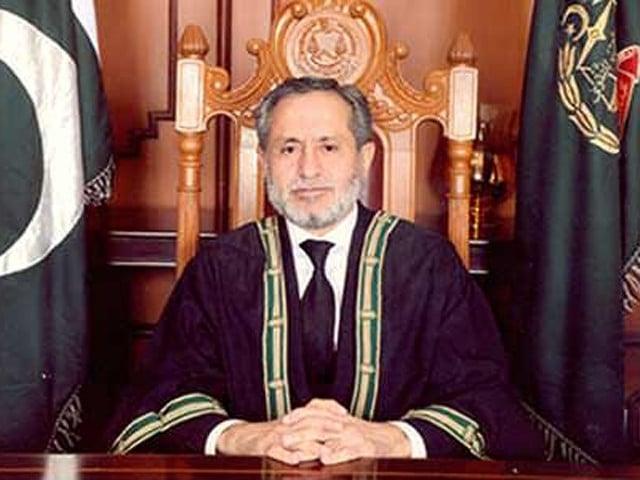Islamabad:
The Supreme Court’s constitutional bench on Wednesday returned the record for military legal attempts to the defense lawyer, citing concern that reviewing it could affect the case against military courts trying civilians.
During the procedure, justice Jamal Khan Mandokhail raised questions regarding credentials for judge who presides in military litigation. He also asked if Article 175 of the Constitution gave way to establishing military courts.
The bench, led by Justice Aminuddin Khan, included Judge Jamal Khan Mandokhail, Ayesha Malik, Muhammad Ali Mazhar, Hasan Azhar Naqvi, Musarrat Hilali, Naeem Afghan and Shahid Bilal Hasan.
The court heard an intra-court appeal against the former judgment that prevented military courts from trying civilians.
Represents the Ministry of Defense claimed attorney Khwaja Haris that if the court reviewed the issue under Article 175, all previous decisions regarding the establishment of military courts would have to be reassessed.
He pointed out that the Constitution allowed the establishment of courts and several other countries also have military courts.
Justice Jamal Khan Mandokhail noted that the army is handling anti-narcotics and when making a lawsuit against an accused, it consults a session judge from High Court. He questioned whether military courts could follow a similar practice.
Haris claimed that military courts had been kept separate from Article 175 of all legal decisions, adding that the Army Act could not be challenged on the basis of fundamental rights.
Justice Jamal Khan Mandokhail expressed concern about a growing trend of public skepticism towards court decisions, saying that lay people were increasingly in doubt about judgments handed down by even eight-member benches.
Justice Musarrat Hilali complained that tales of social media and impressions suggested that judges had political attachments. “I belong to Khyber-Pakhtunkhwa and question military attempts because of their influence on the people of my province. But unfortunately, social media connects me to a political party,” she noted.
Justice Hasan Azhar Naqvi questioned whether journalists and relatives of the defendant were allowed to participate in military trial. In response, Khwaja Haris explained that although the law allows access, security concerns often prevent journalists and relatives from participating in trials.
During the consultation, the defense lawyer presented the military trial records to the bench and distributed copies among the judges.
However, Justice Jamal Khan Mandokhail claimed that review of the records at this time was inappropriate as it could affect the result of the appeal. Then, six judges on the bench returned the items to the defense lawyer.
Justice Mandokhail also noted that judges who performed military litigation were subordinate to authorities and raised concerns about their independence. However, Khwaja Haris replied that any allegations of bias should be supported by evidence.
Justice Mandokhail clarified that he had no personal doubt or objections, but emphasized the need to examine the qualifications and impartiality of those who performed military attempts.
As the consultation concluded, Justice Aminuddin ordered Khan defense lawyer to conduct arguments by Thursday. In response, Khwaja Haris assured the court that he would conclude his submissions within the given timeframe.



